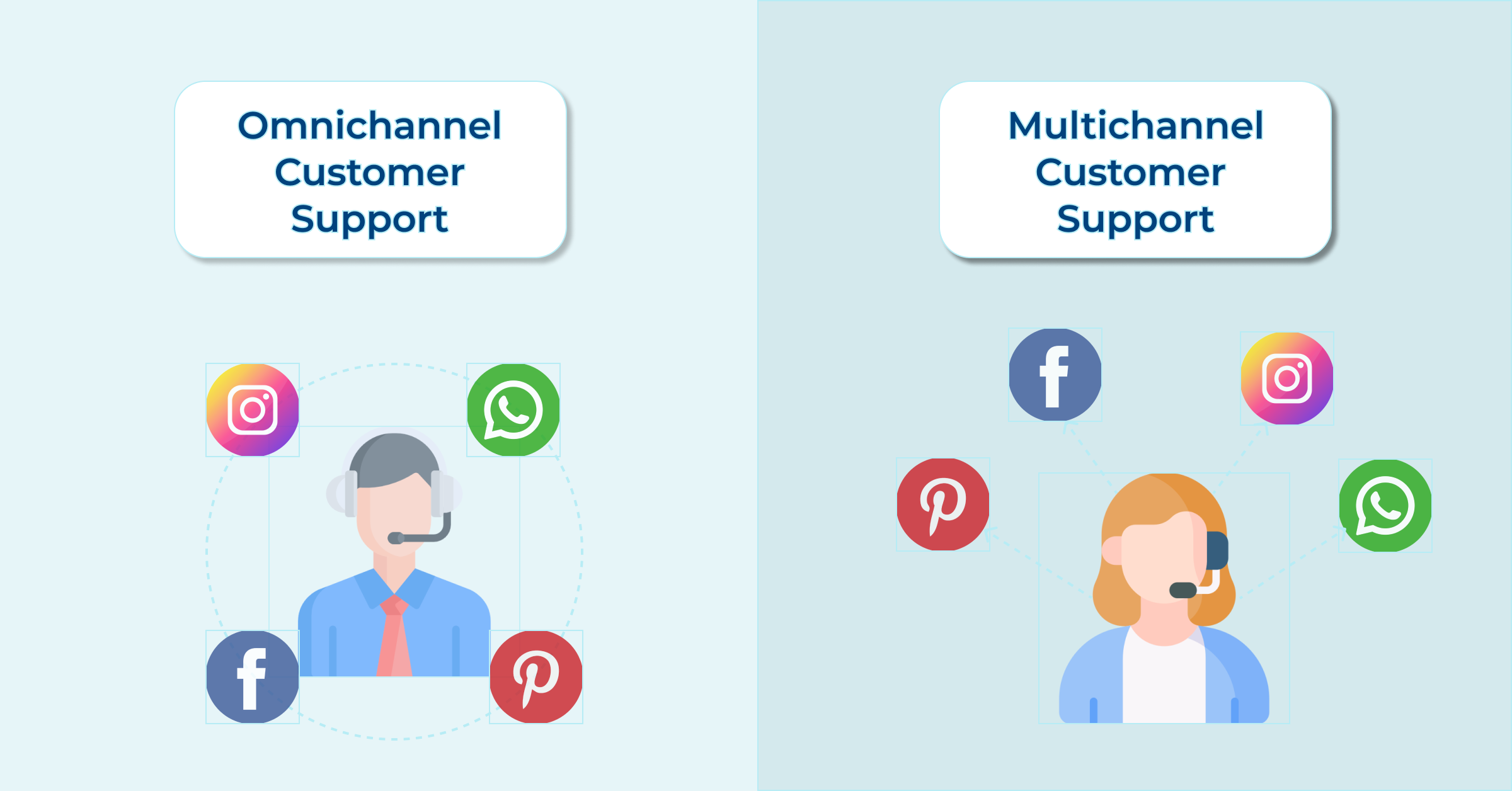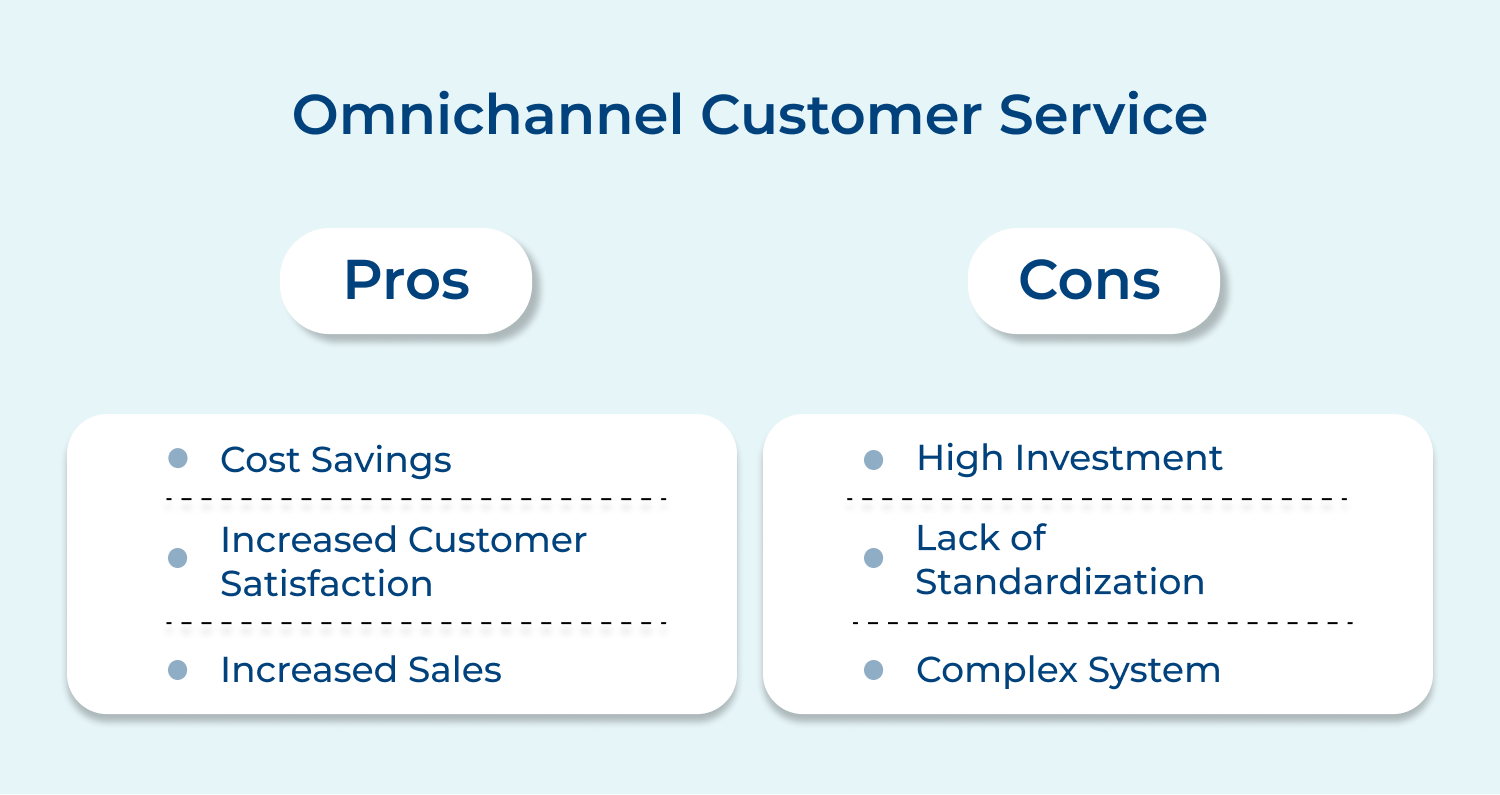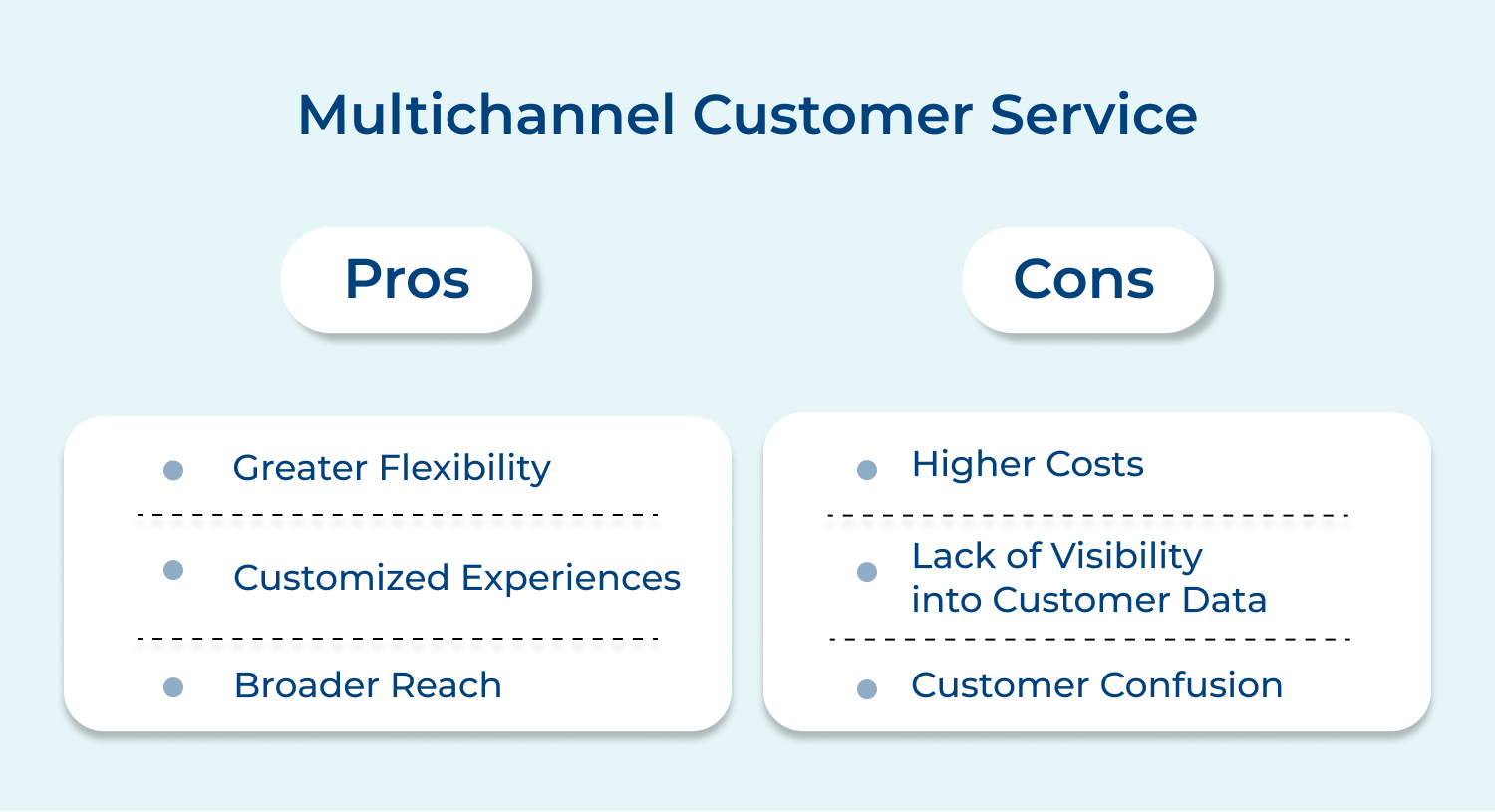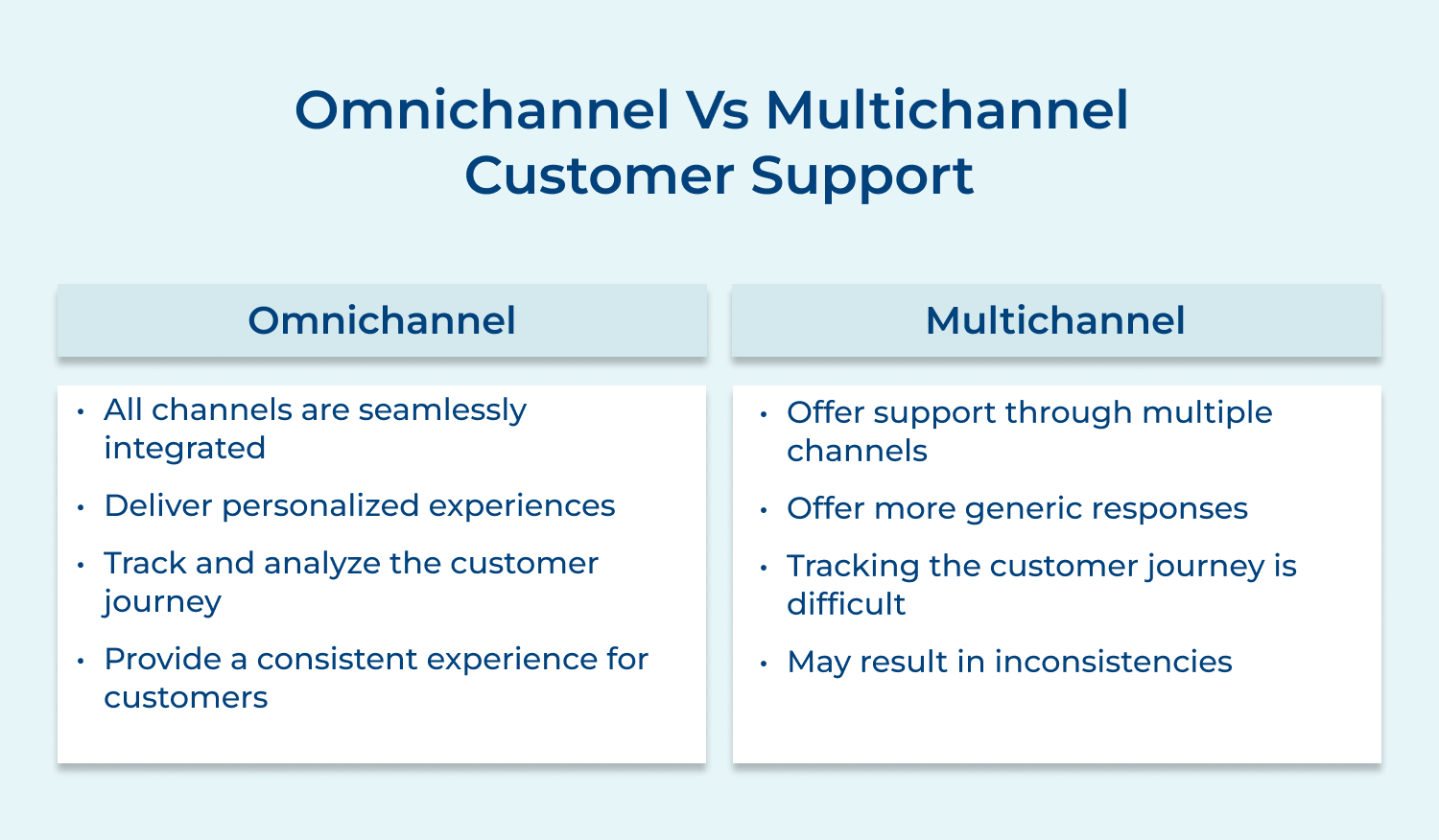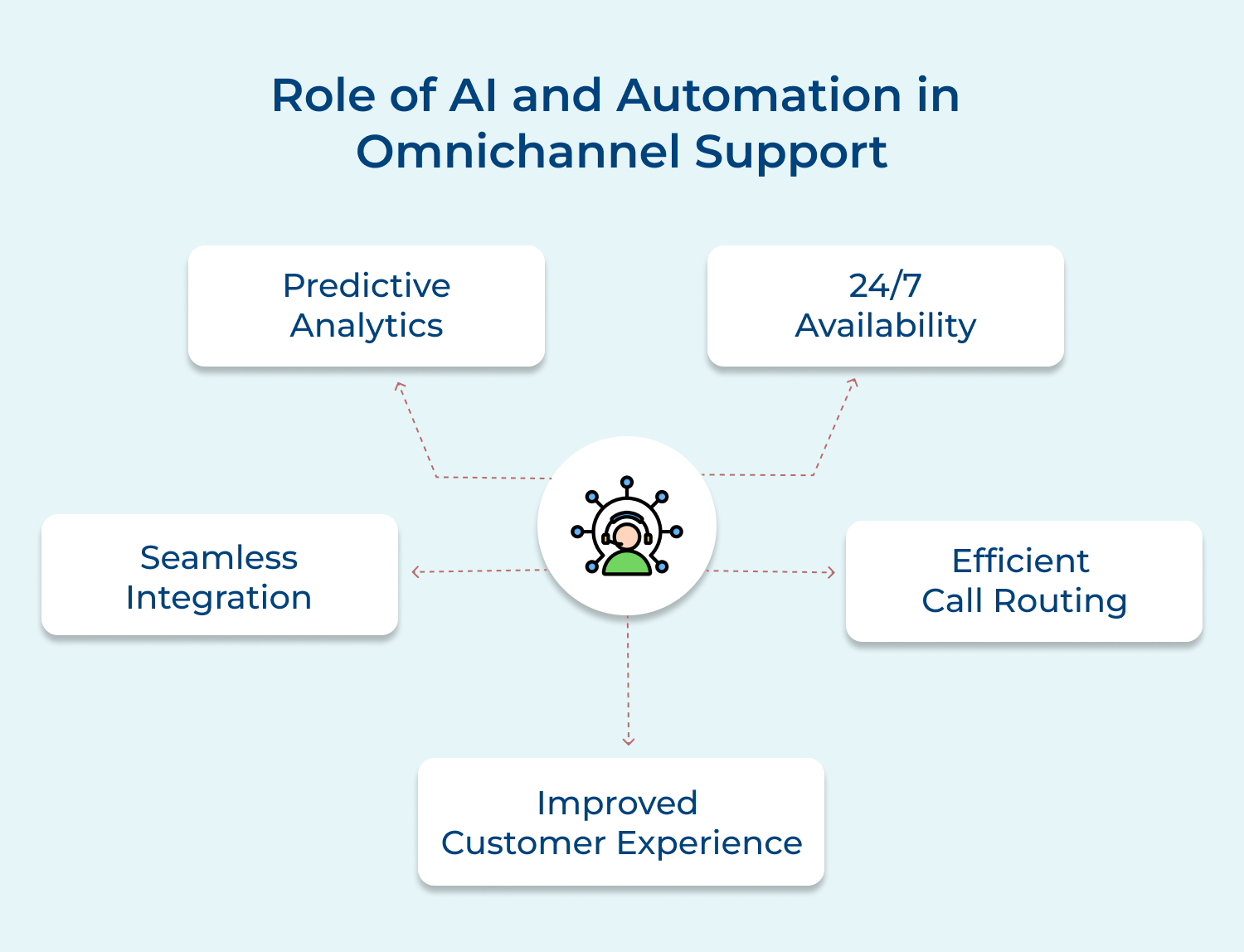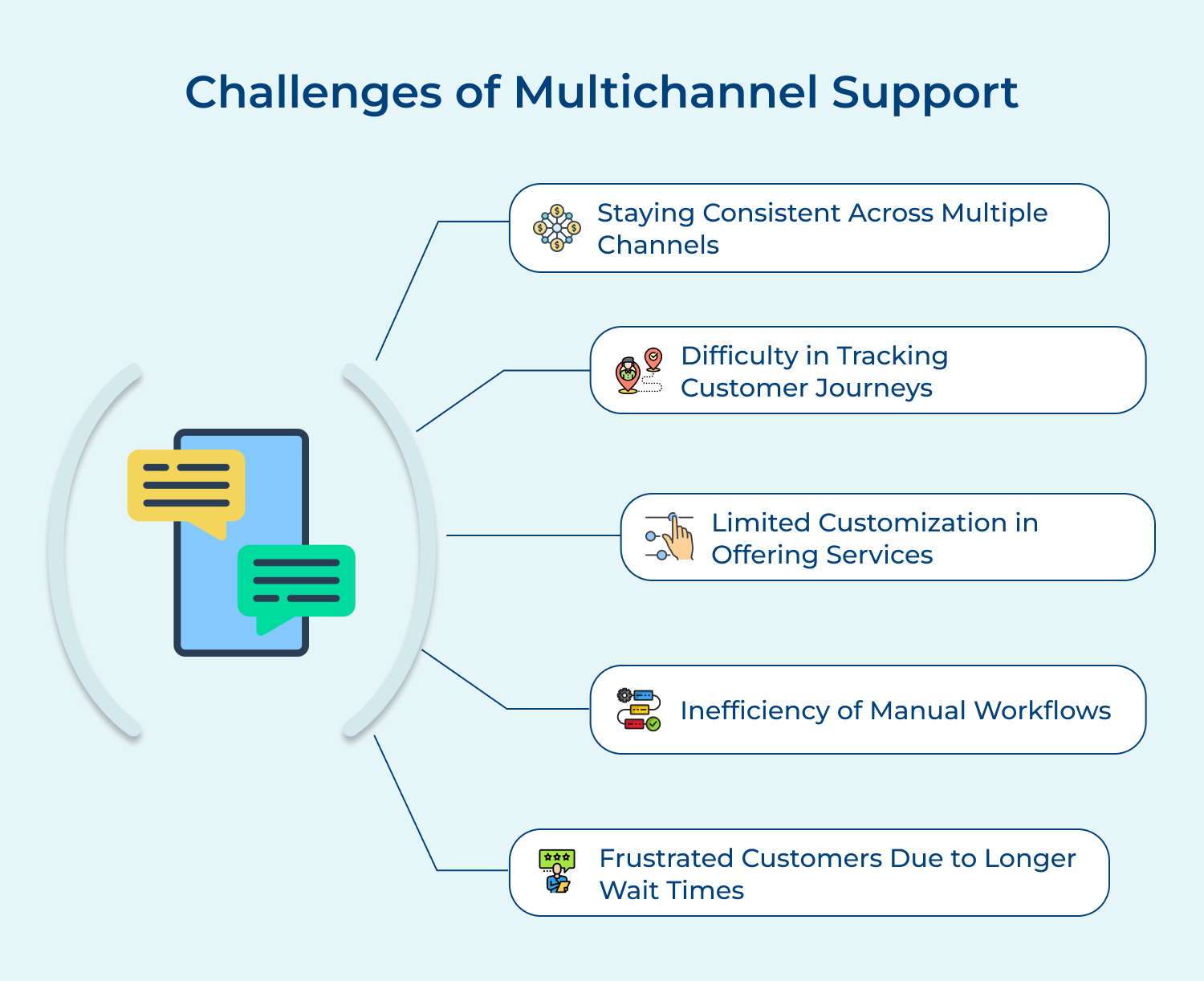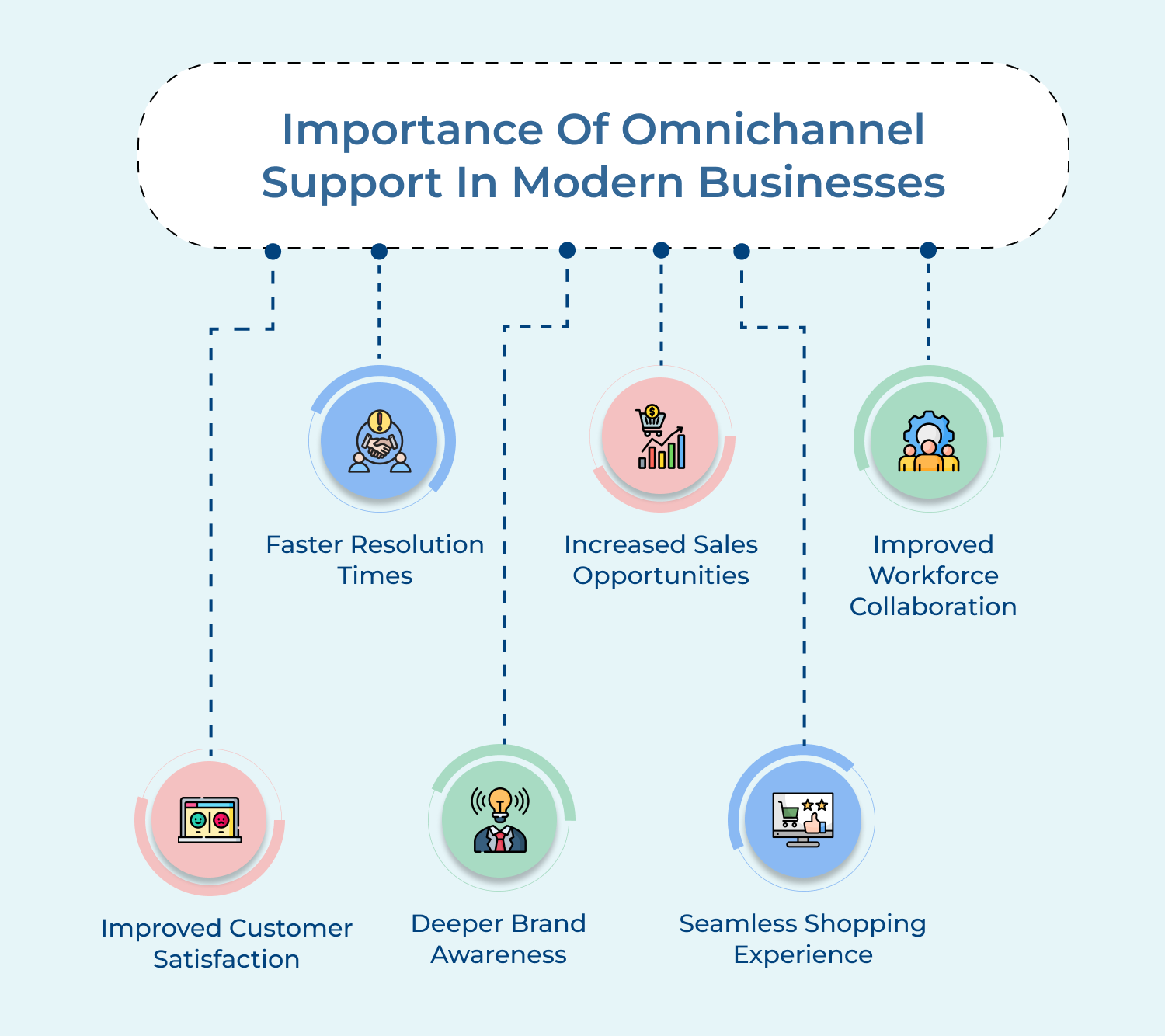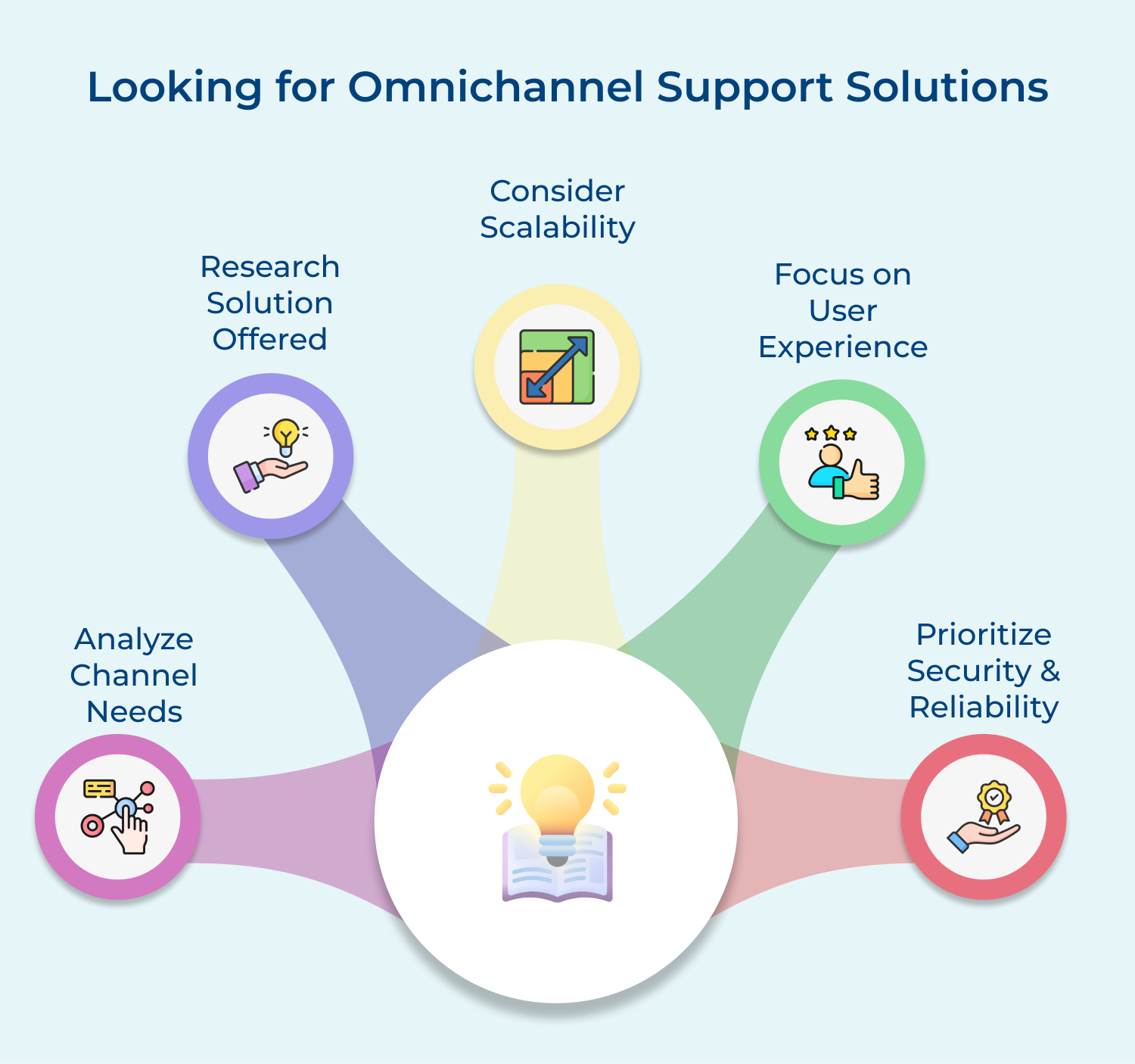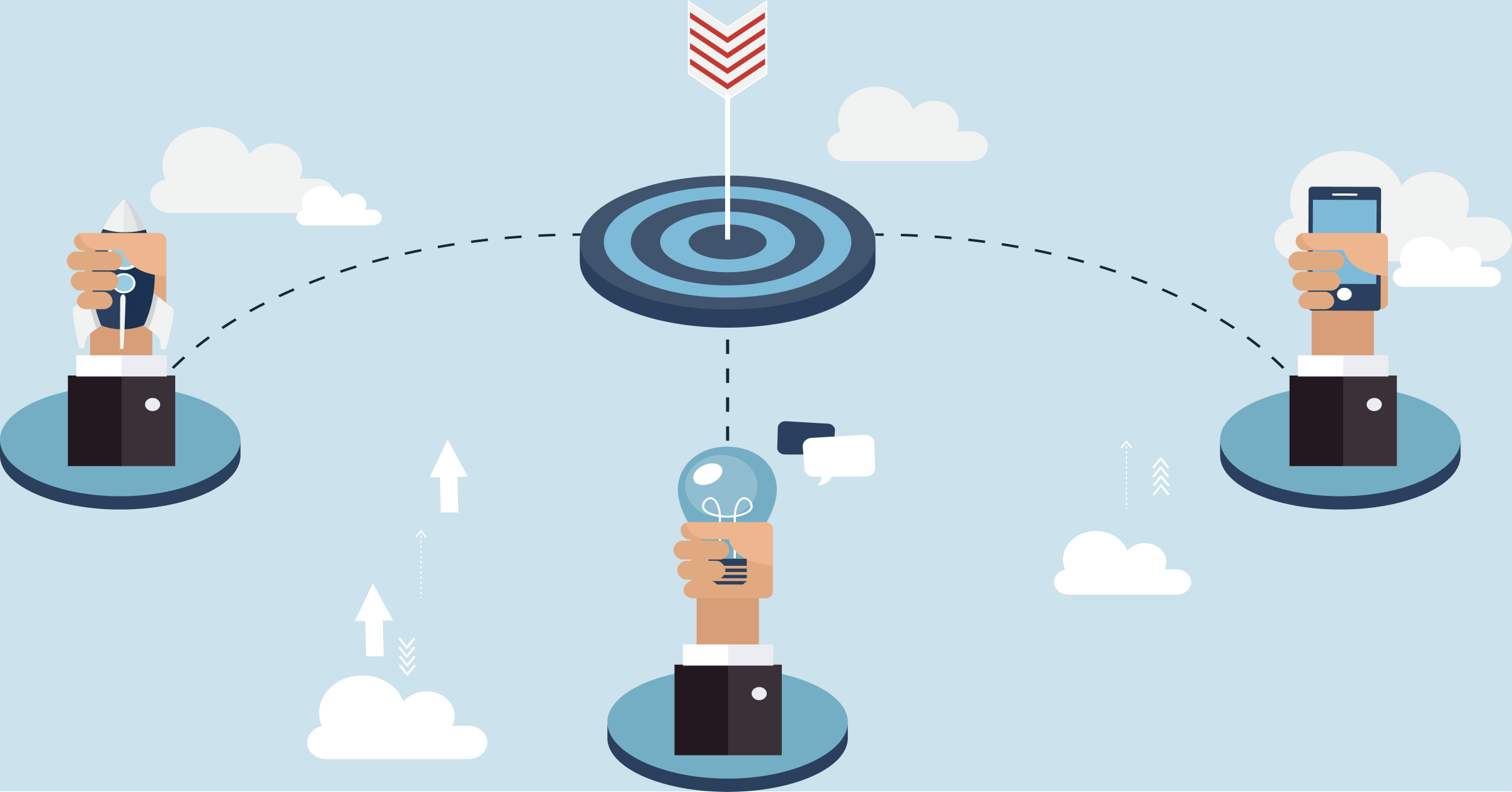1. Integration of Channels
In a multichannel approach, businesses offer support through multiple channels such as phone, email, chat, and social media. These channels operate independently of each other, meaning that customers may have to repeat information when switching between channels.
An omnichannel approach has all the channels seamlessly integrated under one umbrella which allows customers to move between channels without having to repeat themselves.
2. Personalization
The omnichannel support approach enables businesses to deliver personalized experiences to customers based on their preferences and past interactions. With access to data from all channels, businesses can tailor their responses and recommendations to each customer.
Multichannel customer support offers more generic responses as each channel operates independently.
3. Customer Journey Tracking
Omnichannel support offers the ability to analyze the customer journey across all channels. All customer interactions are recorded and can be used to personalize the customer experience and provide targeted support.
In multichannel support, tracking the customer journey can be difficult as interactions may be spread across various channels without a centralized monitoring system and analyzing data.
4. Consistency
In an omnichannel approach, businesses can provide a consistent CX across all channels. Consistency helps to build trust among customers as they know what to expect no matter which channel they use to contact the business.
In contrast, multichannel customer support may result in inconsistencies in the level of service and information provided across different channels.
Role of AI and Automation in Omni Channel Support
AI chatbots and virtual assistants ensure seamless experiences, while automation streamlines workflows for efficient customer engagement across every touchpoint.
